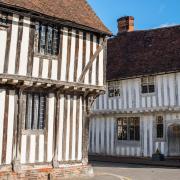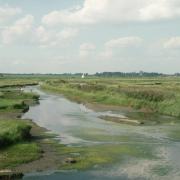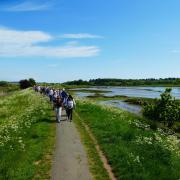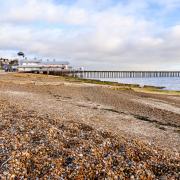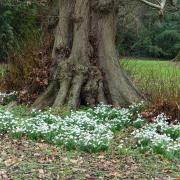Louise Denyer reviews Wake, a delicately written novel set in the aftermath of the First World War

This year has been full of poignant acts of remembrance to mark the 100th anniversary of the outbreak of the First World War. This month will once again see us wearing poppies and taking a few moments on the 11th day at the 11th hour to reflect on the loss of millions of lives as a result of war.
In her delicate and carefully observed debut novel, Wake, writer and actress Anna Hope takes the reader back to 1920, specifically to focus on five days between the exhumation from the French battlefields of the unnamed soldier, chosen at random to honour those who fell in the Great War, and his subsequent interment in Westminster Abbey.
Hope uses this event as a backdrop to the three main narratives that interweave with one another, depicting the aftermath of war and its impact on the men and women of a new post-war society.
The book explores the lives of three very different women. Ada is a working class housewife about to reach the 25th anniversary of her marriage to Jack. Since the unexplained loss of their only child, Michael, somewhere near Albert in France they have grown apart, each trying to deal with their grief on their own. Ada’s inability to lay her ghosts to rest threatens the life that she could have with her husband. Her only confidante is her friend Ivy, who has also suffered loss. Together they travel to the Cenotaph in London to gain a sense of finality from the sight of the coffin containing ‘their son’.

The shell-shocked and disabled ex-soldier, Rowan Hind, links Ada’s story with Evelyn’s tale when he appears at the former’s home and the latter’s place of work. Evelyn is an attractive, privileged young woman who embraced her war-time role working in a munitions factory, and the loss of her lover, Fraser, has left her bereft, angry and drifting numbly through each painful day. She is the only character who Hope allows to show cynicism towards the ceremony. She does not want to remember Fraser in the past tense – she simply wants him with her in the present.
Central to Evelyn’s plot is her brother, Ed. As a captain in the trenches he made impossible decisions every day, which has inevitably taken its toll on him, physically and mentally. He relies on alcohol to obscure the horrors that he must live with and to hide his demons in public. We meet Ed for the first time in a legendary underground nightclub near Leicester Square, where he meets the impressionable Hettie, a 19-year-old dancer.
Hettie and her friend, Di, embody the youth that survived the war and an entire generation no longer alive. The war was a catalyst for major change – universal suffrage, the more liberal fashion of the ‘Roaring Twenties’ and women’s roles in the workplace. Hettie and Di demonstrate a gradual shift to an alternative future. Yet there is a sense that women are not allowed to enjoy their new found freedom. Hettie is burdened by her position as the main breadwinner in her family and resents the broken, seemingly useless man that her brother has become since returning from France.
This novel encouraged me to reflect on the meaning of remembrance and the connection we all have with the past. Most of those who died were ordinary people leading ordinary lives. If it wasn’t for the many memorials dedicated to acts of courage and selflessness, most names would be lost to history.








